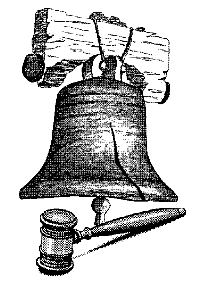The Washington Post reports today that an overwhelming majority of the public are vehemently opposed to the recent Supreme Court ruling in Citizens United v. Federal Election Commission. Interestingly, this opposition appears to cut across partisan, economic, and cultural lines, as the Post notes that "[T]he poll shows remarkably strong agreement about the ruling across all demographic groups, and big majorities of those with household incomes above and below $50,000 alike oppose the decision. Age, race and education levels also appeared to have little relative bearing on the answers."
The decision has continued to spark disagreement and controversy since it was announced, with supporters hailing it as a victory for free speech and opponents calling for a constitutional amendment to correct what they see as a grave error. While talk of the "Senator from Wal-Mart" and the "Congressman from Bank of America" is certainly hyperbolic, the decision does raise very serious questions about the role that corporations should play in the national political sphere. These concerns are all the more salient today as the U.S. economy continues to stumble through a recovery -- a situation that, ironically, was triggered by irresponsible corporate actors who have already proven their talent for evading regulation.
While there are reasonable arguments to be made on both sides of this issue, the two most commonly offered in defense of the Citizens United are somewhat misleading. First, advocates for corporations lament that prior campaign finance restrictions limited their powers of "speech" far more stringently than other groups. This argument ignores the fact that numerous alternative outlets have always been available to corporations -- even under the stricter regulations that were struck down by the Court. For instance, corporations could easily sidestep restrictions by making contributions through a PAC, advertising outside of the limited blackout period, or simply switching to another type of media. More fundamentally, the argument that businesses should be accorded identical opportunities as other groups obscures the very real differences that distinguish these entities. As mentioned in a previous post,
"Non-profit organizations ... rely on a particular constituency composed of individuals with like-minded views. It is easier to trace the path of their contributions to individual citizens and to impute the purpose of political expression to these donors. [...] It is arguably more difficult to discern this important connection when it comes to corporations, which derive their spending power from profits and effective business models rather than direct contributions from individuals who share similar views."
"While the Court has ruled in the past that corporations are (for all intents and purposes) to be endowed with many of the rights and privileges of actual citizens, it seems problematic to offer them more flexibility in the area of politics. One could argue, for instance, that the executives, stock holders, employees, etc. who make up the corporation can simply exercise their rights to free speech individually or through non-profit organizations with which they agree. [...] Insulated from public opinion by practice and profit, those at the helms of large corporations would likely acquire greater influence in the political process -- a notion that is hard to reconcile with the idea of democratic self-governance by the people."
The second claim, even more prevalent than the first, is that this decision is really a boon to small corporations such as "every incorporated mom-and-pop falafel joint, local firefighters’ union, and environmental group" or, even more humorously, "Susie's Flower Shop." This argument is disingenuous because it completely ignores the budgetary realities that most small corporations encounter. It is much more likely -- especially in the midst of a difficult economic recovery -- that most "mom-and-pop" establishments will have neither the inclination nor the disposable income to effectively lobby the electorate. It is by no means certain that struggling small business owners will appropriate capital from other areas of their business to invest in political research, polling, or advertisements. In fact, it seems much more likely that such an undertaking will become the norm only for much larger businesses with deeper pockets.
It is an impermissible stretch of the truth to assert that small, locally owned and operated corporations will profit from this decision in the same way as, for example, Exxon Mobil (valued last year at approximately $375 billion). Even should small businesses wish to exercise their newfound clout, it can hardly be maintained that their influence would even come close to having the same effect as that of a massive conglomerate. Massive corporations, then, are a different story; they stand to gain much from Citizens United. Viewed in this light, the case hailed by Sen. Mitch McConnell (R-KY) as a "1st Amendment triumph" could more accurately be described as a victory for large corporate entities -- and the politicians they support.

